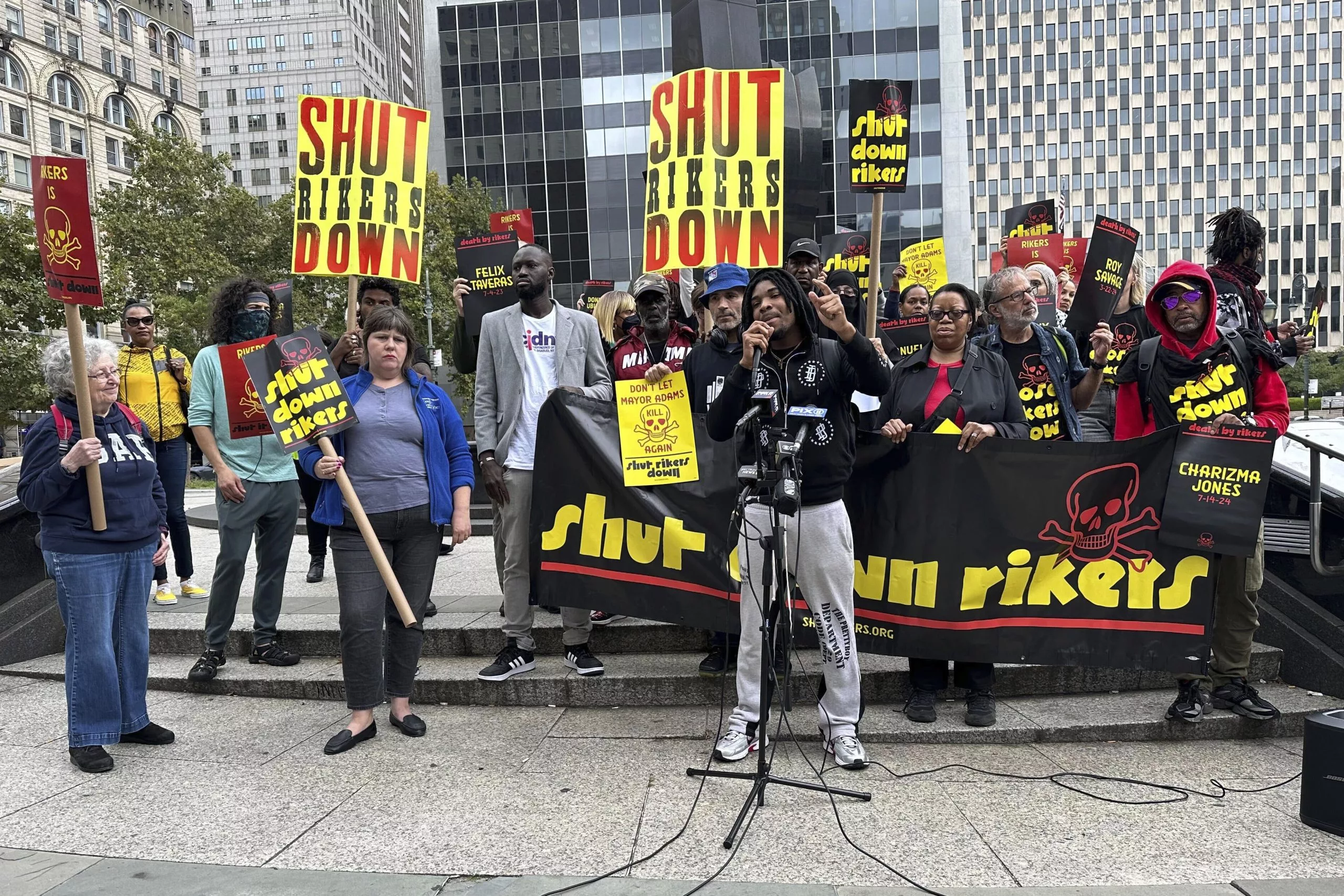NEW YORK (AP) — A federal judge on Wednesday directed New York City officials to begin developing a plan for a possible federal takeover of Rikers Island, following a hearing in Manhattan in a long-running case over abuse, mismanagement and other chronic problems at one of the nation’s largest and most notorious jails.
U.S. District Judge Laura Taylor Swain stopped short of issuing a formal order handing the jail system over to federal authorities, but she said city officials should meet in the coming days with federal officials and inmate advocates to sketch out a potential path forward.
She instructed them to develop by Nov. 12 a “leadership reform plan” that would address, among other things, the parameters for appointing an independent receiver, including the powers, responsibilities and qualifications of such an outside overseer for the city jails.
Swain said she would also rule before then on whether to hold the city in contempt of long-standing court orders mandating reforms at Rikers, which houses more than 6,000 inmates on an island in the East River in the Bronx.
The judge made the declarations after hearing two hours of arguments from lawyers for the city, federal government and inmate advocates.
Jeffrey Powell, a lawyer with the U.S. Attorney’s office in Manhattan, argued the city should be held in contempt because Rikers Island is “more violent and less safe” than it was when court ordered reforms were imposed nearly a decade ago in 2015.
He said reports of use of force by correction officers as well as inmate violence, including slashings, stabbings, fires and fights, have all increased. More than 30 people have also died while in custody or immediately after their release over the past two years, he said.
“Court orders must be followed, and this department has not followed them,” Powell said. “It must be held in contempt.”
But Alan Scheiner, a lawyer for the city, disputed the notion that incidents of violence and abuse are on the rise, saying there have been marked improvements at the jail since Lynelle Maginley-Liddie took over as commissioner of the city Department of Correction last December.
“No doubt DOC can do better, but that doesn’t mean that it’s not trying to meet the court’s expectations,” he said.
Kayla Simpson, a lawyer for the Legal Aid Society, which brought the original lawsuit, argued that the dozens of reports filed by a federal monitor appointed in 2016 to oversee the court-mandated reforms show the agency leadership doesn’t have the capacity for change and more drastic measures are needed.
Quoting from the first page of the monitor’s recent report, she said the jails remain “dangerous and unsafe” because of “pervasive dysfunction in the jails’ management” that “perpetuate a toxic culture.”
Swain at points also pressed the city’s lawyer on his claims that things were turning around at the jails.
“We’ve been here before,” she said at one point, echoing arguments from lawyers for the federal government and inmate advocates. “We’ve seen the positive signs and then the backsliding.”
“There have been a lot of good intentions over the years,” Swain interjected later. “How long do I wait?”
Wednesday’s hearing was the latest in a case that dates back to a class action lawsuit filed in 2012 by the Legal Aid Society and others over what they described as systemic brutality by jail staff against inmates.
The case, which the U.S. Department of Justice later joined, eventually led to a 2015 consent decree ordering significant changes at the city jails and the appointment of a federal monitor to oversee their implementation.
Last November, the advocates filed a motion seeking to hold the city in contempt and place it under receivership.
They said correction officers still use head strikes on inmates and prohibited techniques such as chokeholds, body-slamming and inflicting force on people in restraints.
The advocates also argued that the agency’s leadership has consistently ignored the monitor’s recommendations and failed to take steps to curb abuses.
Spokespersons for the Department of Correction didn’t respond to emails seeking comment Wednesday. But New York City Mayor Eric Adams has vigorously opposed a federal takeover.
The Democrat has argued that his administration, which took office in 2022, has been working to stabilize a jail system that spiraled into chaos during the coronavirus pandemic.
___
Follow Philip Marcelo at twitter.com/philmarcelo.
Brought to you by www.srnnews.com






